BY MOSES KAMUIRU
Charlie Murphy, a comedian and the older brother of Eddie Murphy, died on Wednesday, April 12, 2017. He was 57 years of age. Charlie Murphy’s publicist, Domenick Nati, confirmed to NBC News that the comedian passed away after battling Leukemia.
The Brooklyn-native had been receiving chemotherapy treatments. Aside from his individual successes, Charlie has been largely credited as the inspiration, motivation, and support behind his younger, world-renowned baby brother, Eddie Murphy. And with his family’s support, Eddie Murphy was able to make history over decades of breaking socio-economic and racial boundaries as an equal inspiration to his now departed brother, Charlie, and to America as a whole.
Early Life
Comedian and actor Eddie Murphy was born Eddie Regan Murphy on April 3, 1961, in Brooklyn, New York. In his early years, he spent most of his time in the projects of Bushwick with his brother, Charles Jr., his father, Charles Murphy, who was a New York City police officer and amateur comedian, and his mother, Lillian Murphy who was a telephone operator. At the tender age of three, his parents divorced. His father died five years later and his mother went into the hospital for an extended period. At the age of 9, Murphy’s mother married Vernon Lynch, a foreman at a Breyer’s ice cream factory, after which the family moved to the primarily Black suburb of Roosevelt, Long Island.
Eddie Murphy watched a lot of TV while growing up and groomed an awesome skill for impressions, imitating such characters as Bugs Bunny, Bullwinkle, and Sylvester the Cat. Murphy later said, “My mother says I never talked in my own voice.” Murphy found a great forum for his verbal agility in grade school although he was never a dedicated student, excelling in the popular game of “ranking” which involved trading witty insults with classmates. Hosting a talent show at the Roosevelt Youth Center at age 15, Murphy delighted his young audience with an impersonation of Al Green.
This early success ignited a passion for showbiz, and Eddie Murphy began working on his comedy schedules after school and performing stand-up at clubs, local bars, and “gong shows.” However, his school work suffered, which resulted in Murphy repeating his tenth grade. By attending summer school, Murphy graduated only a few months late. Murphy was voted the “most popular” boy in his graduating class. His declared career plan was to be a comedian.
Mainstream success
When Murphy learned that the producers of NBC’s popular late night comedy show, “Saturday Night Live,” were seeking an African American cast member for the season of 1980-81, he attempted to take on the opportunity. After his first six tries at auditioning, he finally earned a place as an extra on the show. He appeared sporadically throughout the season, until one fateful night when producers realized they had four minutes of airtime remaining and no material. They pushed Murphy before the camera, and told him to do his stand-up routine. His improvised performance was called “masterful” by “Rolling Stone,” and Murphy became one of only two cast members along with Joe Piscopo who were asked back for the next season.
Murphy became “Saturday Night Live’s” strongest comic presence, creating such memorable characters as Mister Robinson, an urban version of TV’s Mister Rogers; an older version of the “Little Rascals” character, Buckwheat; and an illiterate convict and poet named Tyrone Green. He also continued his skillful impersonations, adding Bill Cosby, Muhammad Ali, James Brown, Jerry Lewis, and Stevie Wonder to his repertoire. Eddie Murphy received criticism for his satirical characterizations based on black stereotypes. He defended his performances, claiming that his characters were far too absurd and abstract to be taken seriously.
On The Big Screen
Murphy received a Grammy nomination for a live album of fresh stand-up material called “Eddie Murphy: Comedian” in 1982. The album eventually went gold. At the age of 21, and in the same year, he also landed his first major motion picture role alongside Nick Nolte in “48 Hours” (1982). His charming and inspired performance as the fast-talking convict stole the film, and “48 Hours” grossed over five million dollars in its first week. Murphy followed this success with the 1930s style farce “Trading Places” (1983). Paramount Pictures proceeded to sign the 23-year-old to a 25 million dollar contract for six pictures.
Taking advantage of his status as a hot commodity, Murphy released his first album “How Could it be?” which was produced by music legend Rick James. The first single off the album, “Party All the Time,” peaked at No. 2 on the Billboard Hot 100.
Continued Success
In addition to many other films and successful projects, in 2003, Murphy starred in yet another family comedy, this time as an overwhelmed babysitter in “Daddy Day Care.” The following year, he revived Donkey for the hit sequel Shrek 2. In 2006, Murphy signed on for what was arguably his most demanding film to date, a screen adaptation of the Broadway musical “Dreamgirls,” featuring Jennifer Hudson. His performance as soul singer James “Thunder” Early earned him a Golden Globe award and an Academy Award nomination.
Finally, in 2015, Eddie Murphy received the Mark Twain Prize for American Humor which “recognizes people who have had an impact on American society in ways similar to the distinguished 19th century novelist and essayist best known as Mark Twain,” according to the John F. Kennedy Center for the Performing Arts, which presents the award.
I believe it’s safe to say that the American people, especially the African-American community, are grateful for the years of laughter and joy which the Murphy’s have brought us. Rest in peace to Eddie’s brother, Charlie, and we wish Eddie all the best during this trying time.
You can read more of this story here.





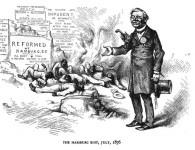
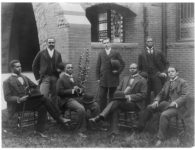



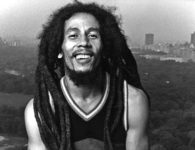
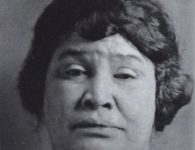
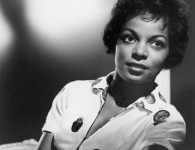
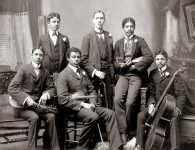
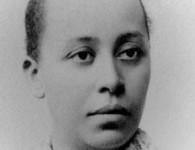
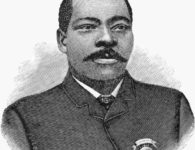


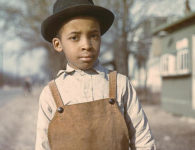

1 Comment
Who was the article written for? Charlie or Eddie. I am offended by the article. How rude and disrespectful can you be? There was nothing in the junk about the life of Charlie Murphy other than he was the older brother of Eddie. Shameful.